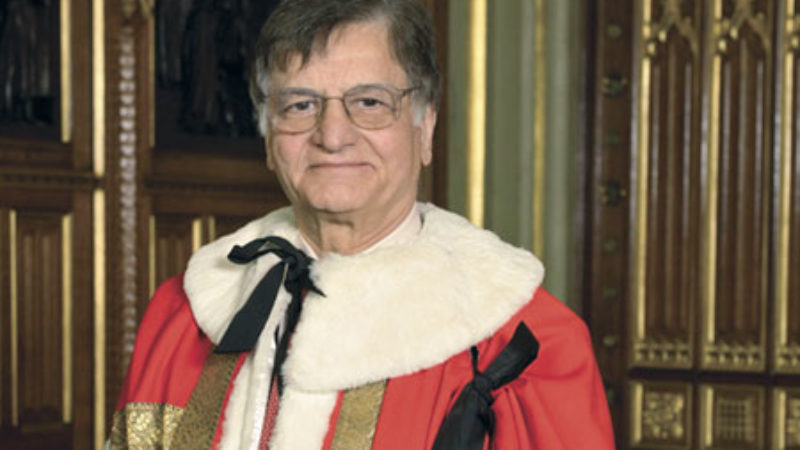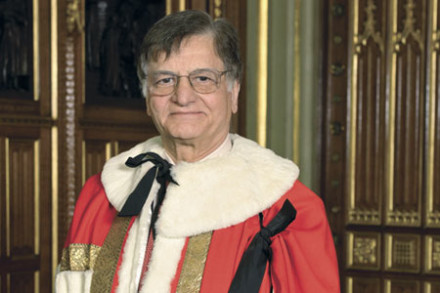

For many young British Asians Lord Noon was a hero. He showed what was possible. I first knew Gulam in the 1970s when he first came to this country. We both lived in Southall, the area I am now the Member of Parliament for, and where he made his home for over twenty years. Southall is where Gulam based his business, where he offered skilled jobs to workers of any nationality and from any religion and where he made a name for himself.
The first thing that struck me upon meeting Gulam for the first time was his intellect, his spark his attitude. He always wanted to make things better, when his father’s sweet shop wasn’t performing as well as it should have, at the age of seven, he learnt the business and only a few years later was running it twice as successfully as the rest of his family.
He was a great lover of the UK, and fully adopted it though he never forgot where he came from. He was one of the first to see the potential in Britain for Indian food, bringing Bombay Mix to this country and beginning one of the most successful food companies we have ever had in the UK. Having come here with little money and knowing few people he made himself a true success story.
Crowned the ‘Curry King’ by the press in the 80s and 90s he stayed a shrewd businessman, and despite suffering setbacks in the ’90s recession he made his business ever more profitable. When his factory was destroyed by fire in 1994 he was back up and running in ten weeks yet he laid off no staff. His was a story that we in the Labour Party can support, he ran a business that worked but treated its workers well. As a result of all he did, later that same year he was awarded ‘Asian of the Year’, and was honoured by celebrations in Ealing.
As he grew older Gulam’s spark was not diminished but he moved his energies to more charitable interests. He founded the Noon Foundation, a charitable trust to assist education and health projects with £4 million of his own money. Gulam also funded a trust for the education of girls in rural India and a Jewish-Muslim interfaith organisation, he was a man driven by his own success to help others.
In 2008 he was caught in the Mumbai Terrorist attacks, and as a Muslim was strident in his criticism of the perpetrators. He was fully committed to the Jinnah and Nehru’s ideas of India and Pakistan’s cooperation. The two nations had to be secular, tolerant and pluralistic, only while there was freedom to worship and live as you desired were India and Pakistan living up to their founding ideals.
In the more recent years since his well-deserved elevation to the House of Lords, as Lord Noon I spent more time with him. In Parliament he was always thoughtful, and although sometimes blunt, always measured in meaning. He was a credit to the Party we shared, the area we both made our lives, and the country he came to call home. He expected much from those around him, but he lived as he spoke and could not have been more welcoming to his Sikh sons-in-law.
On Tuesday we lost a giant, a man who cannot be replaced. Lord Noon was part of a generation of proud British Indians that shaped the UK we see today. I knew Lord Noon for over 25 years and in his death we have lost a businessman, a community activist, but most importantly a close and dear friend.




More from LabourList
‘Labour must confront the crisis of first past the post before it’s too late’
Unite to debate affiliation with Labour Party at conference next year
Miliband tops LabourList Cabinet league table, with gender divide in PM approval